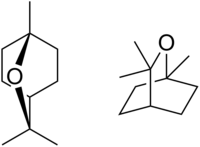
Chemistry, pharmacokinetics, pharmacological activities, and toxicity of Quercitrin
Sign Up to like & getrecommendations! Published in 2022 at "Phytotherapy Research"
DOI: 10.1002/ptr.7397
Abstract: Quercitrin is a naturally available type of flavonoid that commonly functions as the dietary ingredient and supplement. So far, a wide spectrum of bioactivities of quercitrin have been revealed, including antioxidative stress, antiinflammation, anti‐microorganisms, immunomodulation,… read more here.
Keywords: chemistry pharmacokinetics; pharmacokinetics pharmacological; chemistry; toxicity quercitrin ... See more keywords

An extensive review on phytochemistry and pharmacological activities of Indian medicinal plant Celastrus paniculatus Willd
Sign Up to like & getrecommendations! Published in 2022 at "Phytotherapy Research"
DOI: 10.1002/ptr.7424
Abstract: Celastrus paniculatus is a traditional herb belonging to the family Celastraceae and is widely used for a number of medicinal activities in the Indian Unani and Ayurvedic systems. In this study, the extensive literature search… read more here.
Keywords: celastrus paniculatus; activities indian; pharmacological activities; activity ... See more keywords

Isobavachalcone: A comprehensive review of its plant sources, pharmacokinetics, toxicity, pharmacological activities and related molecular mechanisms
Sign Up to like & getrecommendations! Published in 2022 at "Phytotherapy Research"
DOI: 10.1002/ptr.7520
Abstract: Isobavachalcone (IBC), also known as isobapsoralcone, is a natural flavonoid widely derived from many medicinal plants, including Fabaceae, Moraceae, and so forth. IBC has been paid more and more attention by researchers in recent years… read more here.
Keywords: ibc; pharmacokinetics toxicity; plant sources; sources pharmacokinetics ... See more keywords

Genus Retama: a review on traditional uses, phytochemistry, and pharmacological activities
Sign Up to like & getrecommendations! Published in 2018 at "Phytochemistry Reviews"
DOI: 10.1007/s11101-018-9555-3
Abstract: Plants of the genus Retama (Fabaceae) are used in traditional medicine of the Mediterranean Basin as an emetic, purgative, and vermifuge. Certain Retama species are also employed to treat a multitude of disorders, including diabetes,… read more here.
Keywords: pharmacological activities; phytochemistry pharmacological; genus retama; retama species ... See more keywords

d-Pinitol: a cyclitol with versatile biological and pharmacological activities
Sign Up to like & getrecommendations! Published in 2020 at "Phytochemistry Reviews"
DOI: 10.1007/s11101-020-09677-6
Abstract: d -Pinitol (3- O -methyl- d -chiro-inositol) is a cyclitol nearly ubiquitous in the Leguminosae and Pinaceae families. It plays an important role in plants as physiological cellular modulator and chemical defense against unfavorable environmental… read more here.
Keywords: versatile biological; pharmacological activities; pinitol cyclitol; cyclitol versatile ... See more keywords

Phytoconstituents and pharmacological activities of cyanobacterium Fischerella ambigua
Sign Up to like & getrecommendations! Published in 2021 at "Arabian Journal of Chemistry"
DOI: 10.1016/j.arabjc.2021.103153
Abstract: Abstract Cyanobacteria, also known as blue-green algae, are known to be a rich source of secondary metabolites with diverse chemical structures and biological activities. Over 1100 natural constituents of cyanobacterial origin have been reported in… read more here.
Keywords: fischerella ambigua; ambigua; cyanobacterium fischerella; pharmacological activities ... See more keywords

In vivo and in vitro evaluation of pharmacological activities of Adenia trilobata (Roxb.)
Sign Up to like & getrecommendations! Published in 2020 at "Biochemistry and Biophysics Reports"
DOI: 10.1016/j.bbrep.2020.100772
Abstract: Adenia trilobata, locally known as akandaphal in Bangladesh, has some traditional uses. Leaves and stems extracted with pure methanol (MEATL, MEATS) and fractioned by n-hexane (NFATL, NFATS), which was subjected to qualitative phytochemical analysis. The… read more here.
Keywords: vivo vitro; pharmacological activities; activities adenia; evaluation pharmacological ... See more keywords

A review of nardosinone for pharmacological activities.
Sign Up to like & getrecommendations! Published in 2021 at "European journal of pharmacology"
DOI: 10.1016/j.ejphar.2021.174343
Abstract: Nardostachys jatamansi is a natural medicinal plant that is widely used in Asia for the treatment of various neurological and cardiac diseases, and nardosinone is the main active ingredient of N. jatamansi, which has the… read more here.
Keywords: pharmacological activities; nardosinone pharmacological; pharmacology; review nardosinone ... See more keywords

Phytochemical evaluation of the Ferulago genus and the pharmacological activities of its coumarin constituents
Sign Up to like & getrecommendations! Published in 2021 at "Journal of Herbal Medicine"
DOI: 10.1016/j.hermed.2020.100415
Abstract: Abstract The genus Ferulago W. Koch is a member of the Apiaceae (Umbelliferae) family and consists of 49 species throughout the world. In traditional medicine, Ferulago species have been utilized as sedatives, carminatives, aphrodisiacs, for… read more here.
Keywords: phytochemical evaluation; medicine; pharmacological activities; evaluation ferulago ... See more keywords

A review on traditional uses, phytochemistry and pharmacological activities of the genus Ballota.
Sign Up to like & getrecommendations! Published in 2019 at "Journal of ethnopharmacology"
DOI: 10.1016/j.jep.2018.12.001
Abstract: ETHNOPHARMACOLOGICAL RELEVANCE The genus Ballota L. (Lamiaceae) comprises 33 to 35 species distributed mainly in temperate and subtropical regions of the world. Some species have been used in folk medicine as antiemetic, antispasmodic, sedative agents, vermifuge,… read more here.
Keywords: pharmacological activities; genus ballota; ballota; review ... See more keywords

Phytochemistry, pharmacological activities and uses of Indian traditional medicinal plant Kaempferia galanga L. - An overview.
Sign Up to like & getrecommendations! Published in 2020 at "Journal of ethnopharmacology"
DOI: 10.1016/j.jep.2020.112667
Abstract: ETHNOPHARMACOLOGICAL RELEVANCE Kaempferia galanga L. is a stemless, rhizomatous, aromatic, perennial and indigenous herb. It is native to India and distributed in China, Bangladesh, Myanmar, Sri Lanka, Japan, Thailand, Indonesia, Malaysia, Vietnam, Laos, Sudan, Nigeria… read more here.
Keywords: kaempferia galanga; pharmacological activities; phytochemistry pharmacological; galanga ... See more keywords